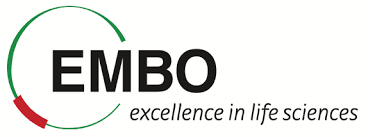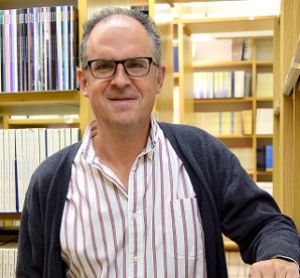EMBO (European Molecular Biology Organization) announced today the appointment of 58 new members of the organisation that includes researcher Roberto Solano, of the Centro Nacional de Biotecnología of the CSIC (CNB-CSIC). New EMBO members are elected annually in recognition of their research achievements and their contribution to scientific excellence in fields of the life sciences
Roberto Solano becomes the seventh CNB-CSIC researcher who has received this appointment, with Carlos Martinez-A, Ana Clara Carrera, Victor de Lorenzo, Salomé Prat, Javier Paz-Ares and Victor Muñoz.
"EMBO is synonymous with excellence in the life science research community. It is a very special and important recognition for me. It is an honour to have received ir," Solano says.
In total, EMBO has more than 1700 scientist members worldwide. Among the new appointments this year are 58 researchers from 21 different countries, four of which are Spanish scientists. The organisation currently has 70 members working in Spanish institutions.
Solano's work focuses on the study of the molecular mechanisms that plants use to respond to stressful situations. The signaling pathway on which his efforts focus is mediated by jasmonate, an essential hormone that plants use to defend themselves from attack by pathogens.
Solano has already been recognised by Thompson-Reuters for two consecutive years as one of the most influential scientific minds in the world. His studies have been published in some of the most important scientific journals such as Nature, Nature Chemical Biology and Plant Cell.
More info in EMBO press release.
About EMBO:
 EMBO is an organisation of more than 1700 researchers whose mission is to promote excellence in the life sciences. The organisation’s main objectives are to support talented researchers at all stages of their careers, to encourage the exchange of scientific information, and to contribute to building a European research environment in which scientists can do their best work.
EMBO is an organisation of more than 1700 researchers whose mission is to promote excellence in the life sciences. The organisation’s main objectives are to support talented researchers at all stages of their careers, to encourage the exchange of scientific information, and to contribute to building a European research environment in which scientists can do their best work.
EMBO helps young scientists to advance their research, promote their international reputation and guarantee their mobility. Through courses, workshops, scientific conferences and journals, EMBO publicizes state-of-the-art research and offers technical training to maintain high standards of scientific practice. In addition, EMBO works to shape science policy through information exchange with the community and by closely following scientific trends in Europe. For more information: www.embo.org
About Roberto Solano:
Solano received his BSc with honours in Biological Sciences from the University of Alcala de Henares in 1989, and a PhD in Biological Sciences from the same university in 1995. He did his PhD work at the Centre for Biological Research (CIB-CSIC) under the direction of Prof. Javier Paz-Ares. In his early years as a researcher, he centred on functional analysis of plant transcription factors.He completed his training with a postdoctoral stay at the University of Pennsylvania (Philadelphia, 1996-1998) in the group of Prof Joseph Ecker.
In 1999 he joined the Department of Plant Molecular Genetics of the CNB-CSIC as a postdoctoral researcher and a year later obtained a position as a tenured CSIC Scientist in the centre. Since then, he directs a research group focussed on elucidating the molecular mechanisms that mediate jasmonoyl isoleucine phytohormone signalling. In 2005 he obtained the position of Research Scientist and in 2009, CSIC Research Professor at the CNB.
His work has identified most of the essential components of the signalling pathway of this hormone and permits very precise understanding of the molecular mechanism that allows transmission of the signal in the cell. This work has made Dr Solano a pioneer in genomic analysis and an international leader in the molecular biology of plant hormones.
He has directed 17 national and international research projects and has more than 65 scientific publications and three patents. In 2014 and 2015, he was named as a "Highly Cited Researcher" by the Thompson-Reuters agency in the area of "Plant & Animal Science" which includes 0.03% of scientists with the greatest impact in their field.






